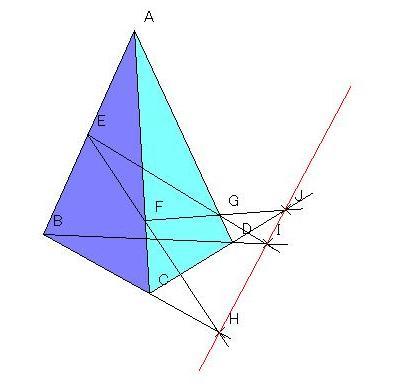結果
| 問題 | No.1234 典型RMQ |
| コンテスト | |
| ユーザー |
 convexineq convexineq
|
| 提出日時 | 2023-05-23 17:41:17 |
| 言語 | PyPy3 (7.3.17) |
| 結果 |
AC
|
| 実行時間 | 485 ms / 2,000 ms |
| コード長 | 7,215 bytes |
| 記録 | |
| コンパイル時間 | 382 ms |
| コンパイル使用メモリ | 82,588 KB |
| 実行使用メモリ | 95,616 KB |
| 最終ジャッジ日時 | 2024-12-23 04:32:00 |
| 合計ジャッジ時間 | 11,762 ms |
|
ジャッジサーバーID (参考情報) |
judge5 / judge1 |
(要ログイン)
| ファイルパターン | 結果 |
|---|---|
| sample | AC * 3 |
| other | AC * 27 |
ソースコード
"""
遅延セグメント木(区間演算、区間更新)
data[] の要素に モノイド X をもつ
lazy[] の要素に Aut(X) をもつ(ただし作用素は「左」から作用とする)
アクセスは0-indexed, 内部のツリーは 1-indexed(つまりすべての和は tree[1])
関数は半開区間
引数:
op_X: モノイド演算 (max, min, __add__,ラムダ式,関数定義など)
e_X: 単位元
compose: 作用素を合成させる関数[注:普通の関数合成と同じく、左作用](max, min, __add__,ラムダ式,関数定義など)
mapping(f,x) = f(x) 関数適用
id_M: 恒等作用素
N: 処理する区間の長さ
array: この配列で初期化
"""
""" 作用素の例:
f \mapsto min(f,-)
compose = min
funcval = min
ID_M = INF = 10**18
f \mapsto max(f,-)
compose = max
funcval = max
ID_M = 0
f \mapsto f (定数関数)(区間代入、最後の操作のみが影響する)
compose = lambda f,g: (f if g == ID_M else f)
funcval = lambda f,x: (x if f == ID_M else f)
ID_M = None #Noneではなく、範囲外の数にすると速くなる
"""
class LazySegmentTree:
def __init__(self, op_X, e_X, mapping, compose, id_M, N, array=None):
__slots__ = ["op_X","e_X","mapping","compose","id_M","N","log","N0","data","lazy"]
# それぞれ Xの演算、単位元、f(x), f\circ g, Xの恒等変換
self.e_X = e_X; self.op_X = op_X; self.mapping = mapping; self.compose = compose; self.id_M = id_M
self.N = N
self.log = (N-1).bit_length()
self.N0 = 1<<self.log
self.data = [e_X]*(2*self.N0)
self.lazy = [id_M]*self.N0
if array:
assert N == len(array)
self.data[self.N0:self.N0+self.N] = array
for i in range(self.N0-1,0,-1): self.update(i)
# 1点更新
def point_set(self, p, x):
p += self.N0
for i in range(self.log, 0,-1):
self.push(p>>i)
self.data[p] = x
for i in range(1, self.log + 1):
self.update(p>>i)
# 1点取得
def point_get(self, p):
p += self.N0
for i in range(self.log, 0, -1):
self.push(p>>i)
return self.data[p]
# 半開区間[L,R)をopでまとめる
def prod(self, l, r):
if l == r: return self.e_X
l += self.N0
r += self.N0
for i in range(self.log, 0, -1):
if (l>>i)<<i != l:
self.push(l>>i)
if (r>>i)<<i != r:
self.push(r>>i)
sml = smr = self.e_X
while l < r:
if l & 1:
sml = self.op_X(sml, self.data[l])
l += 1
if r & 1:
r -= 1
smr = self.op_X(self.data[r], smr)
l >>= 1
r >>= 1
return self.op_X(sml, smr)
# 全体をopでまとめる
def all_prod(s): return self.data[1]
# 1点作用
def apply(self, p, f):
p += self.N0
for i in range(self.log, 0, -1):
self.push(p>>i)
self.data[p] = self.mapping(f, self.data[p])
for i in range(1, self.log + 1):
self.update(p>>i)
# 区間作用
def apply(self, l, r, f):
if l == r: return
l += self.N0
r += self.N0
for i in range(self.log, 0, -1):
if (l>>i)<<i != l:
self.push(l>>i)
if (r>>i)<<i != r:
self.push((r-1)>>i)
l2, r2 = l, r
while l < r:
if l & 1:
self.all_apply(l, f)
l += 1
if r & 1:
r -= 1
self.all_apply(r, f)
l >>= 1
r >>= 1
l, r = l2, r2
for i in range(1, self.log + 1):
if (l>>i)<<i != l:
self.update(l>>i)
if (r>>i)<<i != r:
self.update((r-1)>>i)
"""
始点 l を固定
f(x_l*...*x_{r-1}) が True になる最大の r
つまり TTTTFFFF となるとき、F となる最小の添え字
存在しない場合 n が返る
f(e_M) = True でないと壊れる
"""
def max_right(self, l, g):
if l == self.N: return self.N
l += self.N0
for i in range(self.log, 0, -1): self.push(l>>i)
sm = self.e_X
while True:
while l&1 == 0:
l >>= 1
if not g(self.op_X(sm, self.data[l])):
while l < self.N0:
self.push(l)
l *= 2
if g(self.op_X(sm, self.data[l])):
sm = self.op_X(sm, self.data[l])
l += 1
return l - self.N0
sm = self.op_X(sm, self.data[l])
l += 1
if l&-l == l: break
return self.N
"""
終点 r を固定
f(x_l*...*x_{r-1}) が True になる最小の l
つまり FFFFTTTT となるとき、T となる最小の添え字
存在しない場合 r が返る
f(e_M) = True でないと壊れる
"""
def min_left(self, r, g):
if r == 0: return 0
r += self.N0
for i in range(self.log, 0, -1): self.push((r-1)>>i)
sm = self.e_X
while True:
r -= 1
while r>1 and r&1:
r >>= 1
if not g(self.op_X(self.data[r], sm)):
while r < self.N0:
self.push(r)
r = 2*r + 1
if g(self.op_X(self.data[r], sm)):
sm = self.op_X(self.data[r], sm)
r -= 1
return r + 1 - self.N0
sm = self.op_X(self.data[r], sm)
if r&-r == r: break
return 0
# 以下内部関数
def update(self, k):
self.data[k] = self.op_X(self.data[2*k], self.data[2*k+1])
def all_apply(self, k, f):
self.data[k] = self.mapping(f, self.data[k])
if k < self.N0:
self.lazy[k] = self.compose(f, self.lazy[k])
def push(self, k): #propagate と同じ
if self.lazy[k] is self.id_M: return
self.data[2*k ] = self.mapping(self.lazy[k], self.data[2*k])
self.data[2*k+1] = self.mapping(self.lazy[k], self.data[2*k+1])
if 2*k < self.N0:
self.lazy[2*k] = self.compose(self.lazy[k], self.lazy[2*k])
self.lazy[2*k+1] = self.compose(self.lazy[k], self.lazy[2*k+1])
self.lazy[k] = self.id_M
###################################################################
#
###################################################################
import sys
readline = sys.stdin.readline
n, = map(int, readline().split())
*a, = map(int, readline().split())
q, = map(int, readline().split())
from operator import add
e_X = INF = 1<<60
id_M = 0
op_X = min
compose = add
mapping = add
seg = LazySegmentTree(op_X, e_X, mapping, compose, id_M, n, array=a)
for _ in range(q):
k,l,r,c = map(int, readline().split())
#print(seg.data,seg.lazy)
if k==1:
seg.apply(l-1,r,c)
else:
#print(k,l,r,c)
print(seg.prod(l-1,r))
